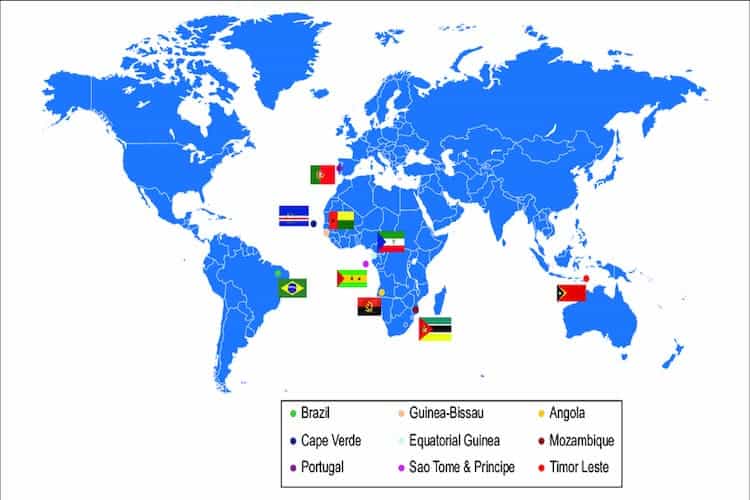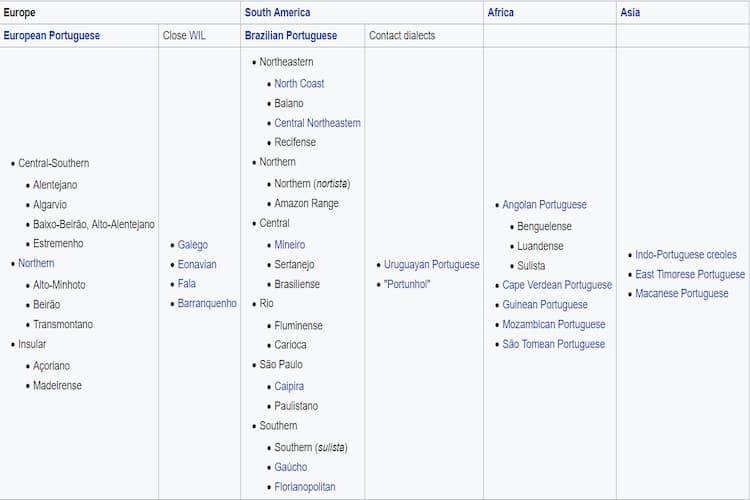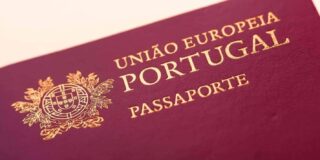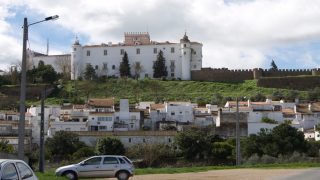Did you know that Portuguese is the 6th most spoken language in the world? Portuguese is also spoken in 6 different continents and it’s the official language of 7 different countries. Read further and learn more about the origins and the present form of this diverse language.
Where does the Portuguese language originate from?
In 218 BC, the Roman soldiers and colonists arrived in the Western Iberian Peninsula. The Portuguese language developed from the Latin that the invaders talked and slowly became an independent language.
A brief history class
Although the Iberian Peninsula was occupied by the Barbarians, Visigoths and the Moorish, they didn’t have a big impact on the development of the language. Portuguese wasn’t officially used and recognized until the foundation of the first Portuguese university in 1290. Since then, Portuguese became the formal language and evolved from the language of the poor to the language of poetry. This era was called the first period of the “Old Portuguese”.

The second period of the “Old Portuguese” was between the 14th and 16th century when Portuguese discoverers spread their language all around the globe. They gained a foothold in America, Asia and Africa and still have an impact nowadays. During the conquests and the catholic missionary efforts, Portuguese became a lingua franca, a common language between the African and Asian locals and the invaders. The starting point of the Modern Portuguese dates back to the Renaissance. Since then the language has been constantly standardized and the process is still not over. Find out where you can learn Portuguese and all the tricks to learn it faster right here.
Where is Portuguese spoken?
After the colonization, the number of countries that spoke Portuguese grew. Currently Portuguese is the official language of:
- Portugal,
- Brazil,
- Cape Verde,
- Guinea-Bissau,
- Mozambique,
- Angola and
- São Tomé and Príncipe

Although it’s not the main language, Portuguese is also the co-official language of East Timor, Equatorial Guinea and Macau.
How many people speak Portuguese?
Altogether, circa 280 million. From the countries that speak Portuguese, there are around 220 million native speakers, which makes it the sixth biggest language in the world.
Are there communities of people who speak Portuguese?
Yes, there are several communities, such as PALOP. PALOP represents African countries that speak Portuguese. The members are:
- Angola,
- Cape Verde
- Guinea-Bissau
- Mozambique
- São Tomé and Príncipe
- Equatorial Guinea (since 2011)
All of these countries were part of the former colonies of the Portuguese Empire.
Different dialects in Portuguese
Portuguese is diverse not only in different countries but even inside them, in different areas and cities. The language has ancient varieties and new forms as well, all around the world. Galician, for example, has common roots with Portuguese. It is spoken in the autonomous region of Spain, in Galicia. The Galician language generates numerous arguments if it counts as a Portuguese dialect or it is an independent language. On the other hand, Creole has a totally different history. It developed on the colonies of the Portuguese Empire between the 15th and 16th century and has had plenty of variations since then. The invaded territories developed their own version of Portuguese and use it as the official language nowadays. You can find different Creole in countries that speak Portuguese from Africa, Asia and South America as well. Although, as we mentioned before, different Portuguese dialects can be found inside one country. Between the countries that speak Portuguese, Portugal and Brazil deal with the most dialects. Every main city and region has its own pronunciation that makes it easy to recognize someone’s origins. Take a look at the spreadsheet and see them all.

If you would like to learn more about the different regions of Portugal, read more here!
How different is Portuguese from Portugal and Brazilian Portuguese?
Even for a not native Portuguese speaker, it’s easy to tell some differences between Portuguese from Portugal and Brazilian Portuguese. First of all, in Brazil, people talk slower and with a singing cadence, enunciating the syllables more clearly. People often compare this way of talking with singing. At the same time, Portuguese from Portugal is spoken much faster with some of the letters disappearing, which makes it harder to understand. Here are some expressions you should learn before visiting Portugal.

However, the two languages are still pretty much the same, even if they have officially different rules. In some people’s opinion, Brazilian Portuguese has a kind of simplified grammar and plenty of own expressions. Also, there are some words which are the same, but with different meaning compared to Portuguese from Portugal. For example, while in Portugal rapariga means girl or young lady if you call someone rapariga in Brazil that young lady will take it as a serious offence… Often the difference between the two expressions is just a letter or an accent – in Brazil, they often use ^ instead of ´- and even if the word is different they probably know what it means. If you are curious about the differences in vocabulary between the continental and Brazilian Portuguese, you can find more examples here.
How different is Spanish and Portuguese?
Spanish and Portugues are both Romanic languages, developed from the very same roots, just as Italian and French. However, Spanish is still the closest language to Portuguese. In vocabulary, the basic, ancient words are identical, such as sol (sun) or água (water) and a lot of others are very similar. The written language is basically understandable if you know at least one of the languages.

Can Portuguese understand Spanish, and vice-versa?
Since the basics of the two languages are very similar it is possible to understand one another. Although, because Portuguese from Portugal has a closed pronunciation, it can be difficult for Spanish speakers to understand. At the same time, Brazilian Portugues and Latin American Spanish have even fewer differences than the ones from the European continent. In case you would like to learn Portuguese and already speak Spanish it will be easier to understand the logic of the language and learn the expressions. The problem is that it’s easy to mix those two languages and end up talking Portuñol, the combination of Spanish and Portuguese.
Are there any English words with Portuguese origins?
There are plenty of Portuguese words which got introduced to the English language over the centuries. One of the most famous ones is the mosquito, which means little mosquito, but banana, coconut, breeze and zebra also originated from the Portuguese language.
Why learn Portuguese?
The number of countries that speak Portuguese is over ten and present all around the world. That means speaking Portuguese can be a great skill to communicate with people from all over the world. For example: in case you plan to travel to Brazil, speaking the language will make a huge impact on the experience. Locals rarely speak English, so speaking Portuguese is the only way to reach them. Portuguese is not an easy language to learn, but it is very precious knowledge. Over 220 million people speak Portuguese globally which means several opportunities for building personal and business connections. The Portuguese language is a gate for several opportunities. You can discover new cultures, places and people while having a unique and valuable skill in your resumé as well.






